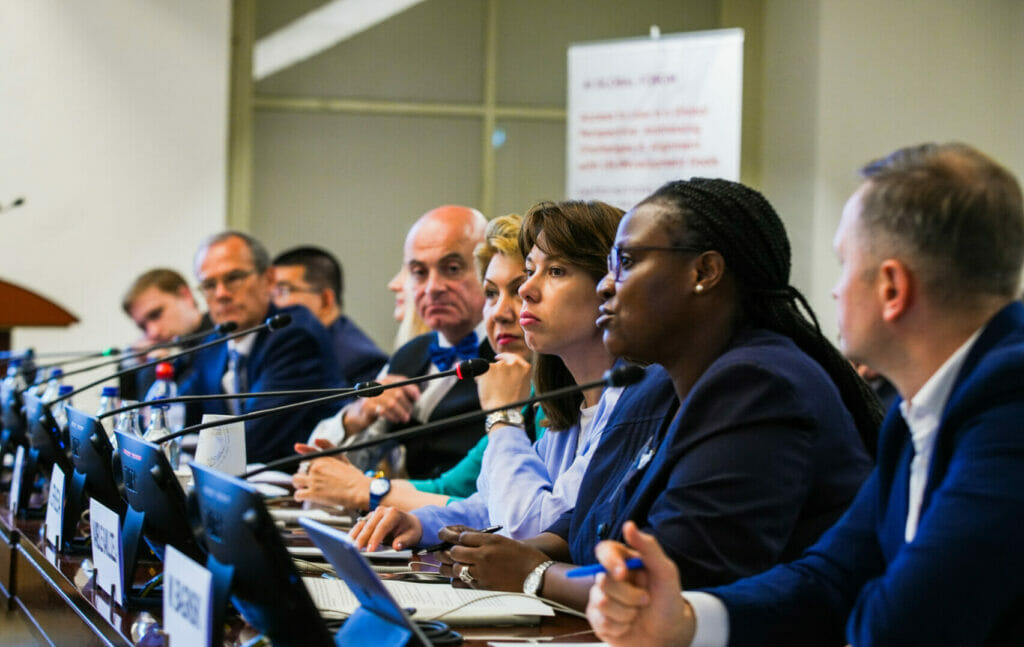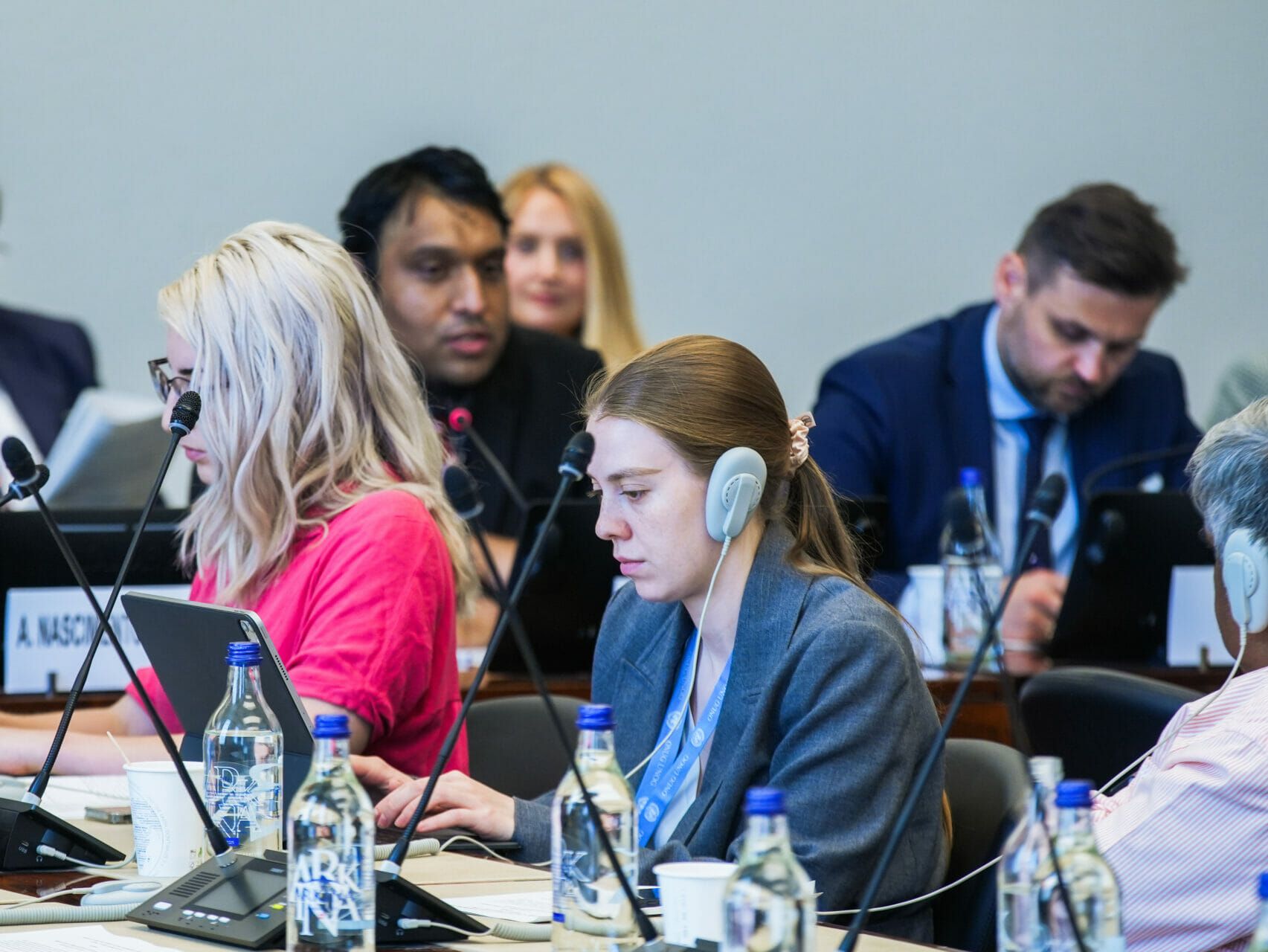UN SDGs, AI, and the Future of Legal Professions Event
Written by Naomi Dunlap and Polina Melnikova

Written by Naomi Dunlap and Polina Melnikova
On Monday 26 June 2023, WFUNA representatives attended a meeting held at the Palais des Nations addressing the topic of ‘UN SDGs, AI, and the Future of Legal Professions: Fostering Equality and Access to Law.’ This event was organized by the Geneva-based Center for Research and Initiatives for Dialogue (CIRID) in partnership with the Swiss-Chinese Law Association (SCLA). This initiative builds on UNESCO’s 2021 unanimously adopted ‘Recommendations on the Ethics of Artificial Intelligence,’ which aims to promote peace, justice, and robust institutions. (insert link to that here)
The Chief of Cabinet of the Director General of the United Nations Office at Geneva, Dr. David Chikvaidze, delivered the first keynote speech highlighting the need for a multilateral approach to AI. The panels consisted of legal experts with distinct backgrounds. They introduced concepts such as implementing cohesive legal frameworks to govern the growing field of AI. They also suggested that countries must work together in order to come up with solutions on how to responsibly regulate AI.
 Throughout the conference, the panelists discussed various themes relating to AI, including ways in which AI could help the UN reach its sustainable development goals (SDGs), putting specific emphasis on Goals 8, 9 and 17, (economic growth, industry/innovation/infrastructure, and partnership, respectively). The speakers noted that one of the largest obstacles to effective legal proceedings in any country is the amount of time it takes to complete the legal process. The following discussion suggested ways that AI could help optimize proceedings, including the possibility of automatic transfer of court-awarded funds to the winning party of a case. On the other side of the coin, the panelists discussed the drawbacks of AI and dangers it could pose to the SDGs and beyond.
Throughout the conference, the panelists discussed various themes relating to AI, including ways in which AI could help the UN reach its sustainable development goals (SDGs), putting specific emphasis on Goals 8, 9 and 17, (economic growth, industry/innovation/infrastructure, and partnership, respectively). The speakers noted that one of the largest obstacles to effective legal proceedings in any country is the amount of time it takes to complete the legal process. The following discussion suggested ways that AI could help optimize proceedings, including the possibility of automatic transfer of court-awarded funds to the winning party of a case. On the other side of the coin, the panelists discussed the drawbacks of AI and dangers it could pose to the SDGs and beyond.
The panelists also touched upon achieving global equality through access to the law with the help of AI. We heard from experts whose countries (for example, China) had already implemented technology to help make legal assistance more accessible to the public through the use of AI. Additionally, there were panelists from other parts of the world where the technologies needed to fuel AI are generally less available to the public. The wide variety of opinion and expertise provided a valuable multifaceted perspective on the topic.
Toward the end of the session, attendees heard from the AI Declaration Draft Committee who produced the final document suggesting ways the international community could govern AI. Overall, the conference was an important first step in reaching an international framework on how to responsibly govern AI. Adopting a multilateral approach to the rising field of AI can only bring the world closer to success in responsibly overseeing the development of AI.
View the outcome document here.
Do you want to learn more about the UN? Or implement an SDG project in your community? Our programs will give you the skills and connections you need!
Learn MoreAre you part of an organization, foundation or school that wants to help achieve the UN’s Sustainable Development Goals? We are always open to collaborating to help connect more people to the UN and empower global citizens.
Let’s start a conversation!